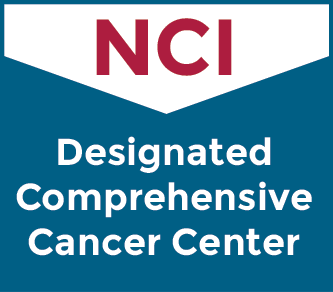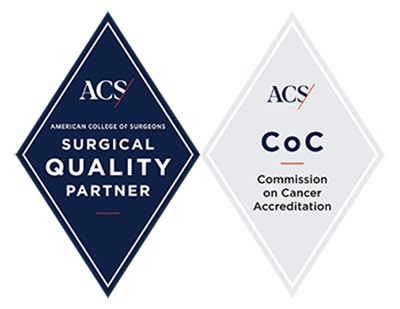Transthoracic Esophagectomy
Transthoracic esophagectomy is a common treatment for esophageal cancer, which develops in the tissues of the esophagus, a muscular tube that carries food from the throat to the stomach. The two main types of esophageal cancer are squamous cell carcinoma, which forms in the flat cells that line the esophagus, and adenocarcinoma, which begins in the mucus-producing glandular cells of the esophagus. Risk factors include chronic gastroesophageal reflux disease (GERD), smoking, heavy alcohol consumption and obesity.
Symptoms of esophageal cancer can include difficulty swallowing (dysphagia), chest pain, weight loss, and persistent coughing or vocal hoarseness. An early diagnosis is essential to achieve the best possible outcome and quality of life. Depending on the location and stage of the tumor, treatment may involve surgery, such as transthoracic esophagectomy, radiation therapy, chemotherapy and/or immunotherapy.

Why is transthoracic esophagectomy performed?
Transthoracic esophagectomy is performed to treat esophageal cancer by removing all or part of the esophagus through incisions in the chest and abdomen. The surgeon will then reconstruct the esophagus to restore swallowing function. The goals of the surgery are to remove the cancerous section of the esophagus, along with some nearby lymph nodes, to help prevent cancer spread and increase the likelihood of remission.
Also known as Ivor Lewis esophagectomy, transthoracic esophagectomy may also be considered for addressing a benign esophageal condition, such as high-grade dysplasia or a noncancerous tumor, if less invasive treatment is not possible or proves ineffective.
Who is a good candidate for transthoracic esophagectomy?
Typically, a good candidate for transthoracic esophagectomy has a localized, early-stage esophageal tumor confined to the middle or lower section of the esophagus with no evidence of cancer spread to nearby tissues or distant organs. The candidate should be in good overall health, with sufficient lung and heart function to withstand major surgery and the recovery process that follows.
Transthoracic esophagectomy may also be considered for a patient with more advanced esophageal cancer that has not responded adequately to other treatments, such as radiation therapy and chemotherapy.
ACS Surgical Quality Partner for 30+ Years
Continuously Accredited by the American College of Surgeons Commission on Cancer since 1989 for our commitment to providing comprehensive, high-quality and multispecialty patient-centered care.
How to prepare for transthoracic esophagectomy
By thoroughly preparing for transthoracic esophagectomy, the patient can help ensure the best possible outcome and quality of life. This may involve:
- Medical evaluations – The patient will undergo a comprehensive medical assessment, which may include imaging tests such as computed tomography (CT) or positron emission tomography (PET) scans, endoscopy and possibly endoscopic ultrasound (EUS) to help the surgeon assess the extent of the cancer and plan the procedure.
- Preoperative testing – The patient may have blood work, pulmonary function testing and a cardiac evaluation, which can help ensure fitness for surgery.
- Surgical consultations – The patient will meet with their surgical team, including the surgeon, anesthesiologist and possibly a nutritionist and physical therapist, to discuss the procedure, anesthesia, postoperative care and recovery process.
- Lifestyle modifications – The surgical team may suggest that the patient make some lifestyle changes, such as quitting smoking, reducing alcohol consumption and consuming a nutritious diet, to enhance their health and healing capacity.
- Medications – The patient should discuss their current medications (including prescription drugs, over-the-counter remedies, vitamins and supplements) with their surgeon, who will provide instructions on which medications to temporarily stop or adjust. The patient may also be prescribed antibiotics or other medications before the procedure.
- Fasting – The patient should adhere to their surgeon's guidelines on fasting, which usually begins the night before surgery to ensure an empty stomach and prevent anesthesia complications.
- Support – The patient should plan for postoperative support by arranging for transportation to and from the hospital and help at home during their recovery.
- Packing – The patient should pack a small bag with essential items for their hospital stay, including comfortable clothing, personal hygiene items and any necessary medical supplies.
What happens during transthoracic esophagectomy?
Transthoracic esophagectomy may be performed using traditional (open) or minimally invasive surgical techniques, sometimes with robotic assistance. The optimal surgical approach will be determined based on factors such as the location and stage of the tumor and the patient’s age and medical history.
In general, transthoracic esophagectomy involves:
- Administering anesthesia – The patient will be placed under general anesthesia to ensure they remain unconscious throughout the procedure.
- Making incisions – The surgeon will make a few incisions, typically one in the abdomen (laparotomy), one in the chest (thoracotomy) and possibly one in the neck.
- Accessing the esophagus – The surgeon will access the esophagus through the incisions and carefully detach it from the surrounding structures.
- Removing part or all of the esophagus – The surgeon will carefully remove the cancerous portion of the esophagus along with some nearby lymph nodes.
- Reconstructing the digestive tract – To restore swallowing function and digestion, the surgeon will connect the stomach or colon to the remaining part of the esophagus or directly to the throat.
- Placing drains – The surgeon may place surgical drains to remove excess fluids and help prevent infection.
- Closing the incisions – The surgeon will close the incisions with sutures or staples and apply dressings to the surgical site.
The entire procedure can take up to several hours to complete.
What are the risks and possible complications of transthoracic esophagectomy?
Like any major surgery, transthoracic esophagectomy carries some risks, including infection, excessive bleeding and allergic reaction to the anesthesia. Possible complications include respiratory issues, such as pneumonia, and difficulty swallowing while the body adjusts to the newly configured digestive tract. These risks will be carefully managed by the surgical team. Most patients recover well with appropriate medical care and follow-up.
 Florida's First NCI-designated Comprehensive Cancer Center
Florida's First NCI-designated Comprehensive Cancer Center
Recognized for its scientific excellence, Moffitt is the state's longest-established National Cancer Institute-designated Comprehensive Cancer Center.
What to expect during recovery from transthoracic esophagectomy
Recovery from transthoracic esophagectomy typically involves a hospital stay of approximately one to two weeks, during which the patient may receive pain management, nutritional support and physical therapy to promote healing and regain strength. Initially, the patient may be limited to consuming liquids or soft foods, and then gradually progress to eating solid foods as their digestive system adjusts.
In general, the patient can expect some discomfort and fatigue as they recover from surgery. Once home, they should carefully follow their surgeon’s guidelines, attend all recommended follow-up appointments and gradually increase their physical activity. Most patients can return to their normal activities within a few months, but full recovery may take several months to a year.
How effective is transthoracic esophagectomy?
Transthoracic esophagectomy can be an effective treatment for esophageal cancer, particularly when the cancer is detected early and has not spread extensively. When performed as part of a comprehensive treatment plan, transthoracic esophagectomy offers a valuable option for managing esophageal cancer and achieving long-term remission for many patients.
Benefit from world-class care at Moffitt Cancer Center
The board-certified, fellowship-trained surgeons in Moffitt’s renowned Gastrointestinal Oncology Program are highly experienced in performing transthoracic esophagectomy using traditional, minimally invasive and robotic-assisted techniques. Moffitt is a trusted, high-volume cancer center, and we complete more robotic-assisted esophageal and thoracic procedures than any other cancer center in the southeastern United States. We also have a robust portfolio of clinical trials.
If you would like to learn more about transthoracic esophagectomy, you can request an appointment with a specialist at Moffitt by calling 1-888-663-3488 or submitting a new patient registration form online. We do not require referrals.

